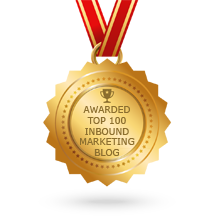
There was a time, not all that long ago, when milkmen would go from door-to-door delivering glass bottles of milk to Australian homes.
In their carts and trolleys would be carefully collated pieces of paper, outlining each milk order; addresses, the preference of each household and the number of bottles for each home.
Primitive as it was, those pieces of paper clutched carefully as the milkman journeyed our suburban streets was one of the early predecessors of what we now know as a Customer Relationship Management system (CRM).
In today’s modern environment CRMs have become powerful tools for compiling customer information, recording a company’s every interaction with them and streamlining the marketing and sales processes to make sure they are tailored to the specific preferences of each individual customer.
What Is A CRM?
In simple terms, a CRM brings together marketing efforts with business processes to be able to identify, pursue and manage valuable customer relationships.
They are essentially a piece of technology or software used to organise, automate and synchronise all of the customer facing areas within your company: from marketing and sales to customer service and technical support.
“A CRM can be a powerful tool in your marketing armoury. By recording your customer's product likes and dislikes, their spending patterns and even their location, age and gender, CRM software enables you to build up a detailed picture of their tastes, needs and buying habits,” says Emma Allen of Marketing Donut.
“This in turn enables you to segment your customer base into groups of buyers with different tastes or budgets. You can identify your most profitable customers, for example, or promising prospects, and target them with marketing messages and offers devised just for them.”
“If the message - and its timing - is right, you could improve your sales conversion rates considerably.”
How A CRM Can Optimise Your Customer Conversion Process
They Create Relationships, Not Databases
In the lead-up to your birthday, have you ever received a card or voucher from your hairdresser, best wishes from the local real estate agent, or a reminder from your dentist that it’s time to book for that annual check-up?
As much as you might like to think you’ve left such a profound impact on these businesses that they’ve remembered your birthday, staff don’t tend to have exceptional birthday recall. They’re using a CRM to send out timely marketing information based on your birth date.
This principle can apply to just about all of your customers, where B2B or B2C. A CRM allows you to compile important information about your clients and tailor a marketing program based on their specific needs, preferences and profiles.
For the customer, it feels more like they’re in a relationship with a business, rather than just being another marketing prospect.
“CRM can capture detailed information about your customers and their behaviours and enable targeted marketing, product development, and sales activities. It can enable you to create the illusion of the personal touch with every interaction,” advise the experts from Maximizer.
“CRM can provide customers with the impression that you understand their needs and preferences – in a scalable way to allow you to remember these things for thousands of customers at any given time.”
Give Your Customers The Ultimate Experience
Recent research suggests that 86% of buyers will pay more for a better customer experience. Consider the potential impact of this for your bottom line: While businesses clamour to cut costs, customers themselves are telling us that they’re willing to pay more if they feel valued and enjoy the experience they receive from the businesses they buy from.
It’s for this reason that platforms such as a CRM should be seen as a vital investment when it comes to customer attraction and retention.
“Ultimately, for all of the benefits CRM systems provide to the companies that use them, the biggest benefit of CRM systems is that their use leads to a better overall customer experience,” says Patricio Robles from econsultancy.
“Customers are more easily and accurately segmented, their needs identified, and because the status of a company's relationship with them is accurately tracked, companies can interact with them meaningfully at the right times, leading to more sales, faster sales and higher customer retention and satisfaction.”
A CRM Makes Your Business More Efficient, Informed and Responsive
As we’ve discussed previously, it’s important that businesses start exploring ways to align marketing and sales.
Implementing a robust and effective CRM is an important piece of the alignment puzzle and will make your business more responsive, nimble and efficient.
“When sales, marketing, and customer service share a common CRM platform, they can speak the same language with one another. Rather than being separated by systems functionality or access to key information, departments across the organisation can function more cohesively. Suddenly, they have what they need to work as a single unit,” advises DMG Online Marketing.
With a CRM, information such as scheduling appointments, keeping records up-to-date and tracking follow-ups can be automated and easily reviewed by everyone across the business.
“Every member of your team will be able to see the exact point when your business last communicated with a client, and what the nature of that communication was. Do they need an immediate follow-up call? Does the relationship need a little rekindling?”
“CRMs can give you instant metrics on various aspects of your business automatically.”
Better yet, a CRM gives you access to real time data. Because your customer and sales information is centralised, you have instant access to a full range of reports and analytics about the habits of your customers.
This information gives you clear insight into your sales funnel and where it is working effectively, and more importantly, outlining any areas for improvement that will ultimately boost conversion rates.


